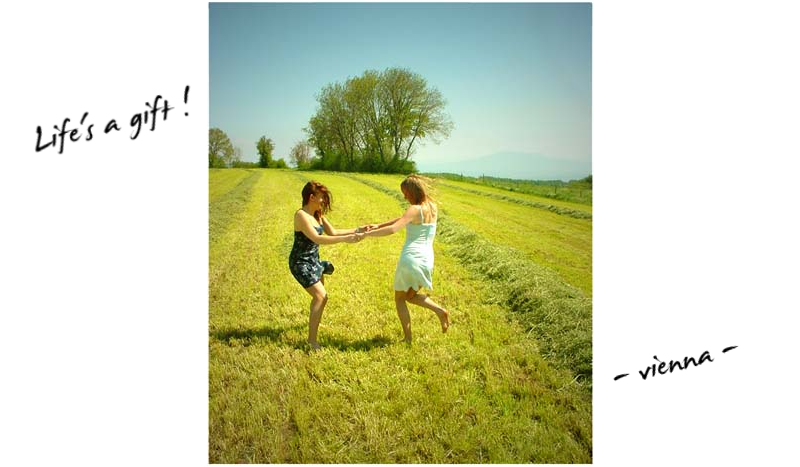As I pulled the plug on facebook, if you need to reach me, email looivienna at gmail.com.
Instead of succumbing to the systemic social engineering and irrational fear* going around us, if you're through this too, let's build things together.
*: does not mean that one does not feel fear, but rather, one chooses to take the bull by its horn -- to accept (non-judgmentally), to experience, and to understand your feelings. I believe that is how one could move further.

"I truly hope I do not live to see the day when Malaysia’s Don Quixote is written. It would probably be banned anyway."
From having to print your race and religion on important public examination answer sheets to brainwashing students with 'ethnic supremacy' ala Hitler's Nazi regime, to resembling the Spanish Inquisition...
The price of purity
Instead of succumbing to the systemic social engineering and irrational fear* going around us, if you're through this too, let's build things together.
*: does not mean that one does not feel fear, but rather, one chooses to take the bull by its horn -- to accept (non-judgmentally), to experience, and to understand your feelings. I believe that is how one could move further.
"I truly hope I do not live to see the day when Malaysia’s Don Quixote is written. It would probably be banned anyway."
From having to print your race and religion on important public examination answer sheets to brainwashing students with 'ethnic supremacy' ala Hitler's Nazi regime, to resembling the Spanish Inquisition...
The price of purity
So many familiar tropes from the Spanish Inquisition are being played out in Malaysia now. Increasing hurdles for those who want to convert, to “prove” their sincerity. The demonisation of the other in terms of being untrustworthy, betrayers and using money to grease their way to domination.
A relentless burial of any historical references, cultural rituals or identities that speak of traditional hybridity or syncretism. The banning of books, films, dances etc. The battles over language and liturgy.
The obsession with purity and so-called Bumiputera rights to define the nation. The increasing rigidity of identity and its shallow accoutrements (what you eat, what you wear, where you hang out, who you talk to, where you go to school etc.). And the silencing of anyone who dares to step out of line.
Just like the Spanish Inquisition, what we have in Malaysia is actually a process of forced nationalisation. A rigid monolithic monoculture nationalism. And religion is one of its most powerful weapons.
Spain became a battlefield to redefine who was allowed to be a Spaniard. Who counts? And the answer was racist, intolerant, harsh, violent and extremely rigid. Those who did not fit, those who clung to previous traditions – even in the tiniest of ways – were hounded, tortured, expelled and killed.
The many hybrid cultures, the fluid identities and multifaceted rituals had to make way for only one way of seeing the world. Yet this worldview is non-traditional and (en)forced. Thus it is always insecure, in danger of dissimulation at every turn. So eventually in Spain, when someone is described as an expert curer of pork, it is actually a euphemism for secret Jew.
Lessons for Malaysia
Don Quixote, the world’s first modern novel, beautifully illustrates this act of collective forgetting, the erasing of history and culture, of meaning itself.
The forced creation of a rigid Spanish identity was shown at every turn to be a stubborn illusion. The book is a satire on the myths that sustain a national identity. Dangerous myths that are no more than tilting at windmills and serve to destroy culture and history. And all based on a lie, a dream of a pure past.
Everywhere in the book are reminders of how this forgetting, this rewriting, happens – the burning of books, over-demonstrations of identity (Dulcinea, our mythologised Spanish heroine is “an expert salter of pork”), the loss of languages, and how easily myths can be constructed to become the basis for history.
In fact, the very idea of chivalry was probably derived from Arab influence. So even that most traditional Spanish trait – that Don Quixote devotes his life to – is not “pure”.
As Maria Rosa Menocal writes of the book,
[f]orged in the bonfires of ideas, of books and of people, was the illusory conceit that there could be a pure national and religious identity, and yet this became the ultimate religion everyone had to live with. …Don Quixote is thus in part a postscript to the history of a first-rate place, the most poignant lament over the loss of that universe, its last chapter, allusive, ironic, bittersweet, quixotic.
The “first-rate place” she refers to is Spain before the Inquisition. A time when cultures, languages and faiths mixed among the people as easily as they mixed with each other.
Of course, it was not a utopia. There were conflicts, constantly negotiated differences. But it allowed for those differences to not only exist but shape society. A tolerance that was taken for granted. It was unimaginable in those days that Spain would ever be a place of only one people, one language and one rigidly defined version of only one religion.












